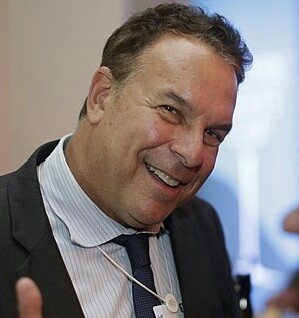A Quote by Muhammad Yunus
I founded Grameen Bank to provide loans to those considered traditionally unbankable. Grameen Bank works with the poorest and often illiterate, providing uncollateralized micro-loans for tiny business enterprises by which they can lift themselves and their families out of poverty.
Related Quotes
Business is about problem-solving, but it does not always have to be about maximizing profit. When I went into business, my interest was to figure out how to solve problems I see in front of me. That's why I looked at the poverty issue. I got involved in lots of things to address it, and one of them was money lending with loans and credits and savings accounts, and in the process I created Grameen Bank. So you can also have social objectives. Ask yourself these questions: Who are you? What kind of world do you want?
If bankers can push the loans and make more profits for the bank, they get paid higher bonuses. They often also get stock options. If the bank goes under, they get to keep all of these salaries and options - and the government will bail out the bank. These guys will take their money and run, which is pretty much what they're doing now.
When you say "bank," a bank is a building, a set of computers and chairs and things. The bankers are the people running these banks. They're the chief officers, and they push the loans because they don't care if they go bad. For one thing, they may package these bad loans and sell them off to gullible institutional investors.
As a matter of fact 25% of our U.S. investment banking business comes out of our commercial bank. So it's a competitive advantage for both the investment bank - which gets a huge volume of business - and the commercial bank because the commercial bank can walk into a company and say, "Oh, if you need X, Y and Z in Japan or China, we can do that for you."




























